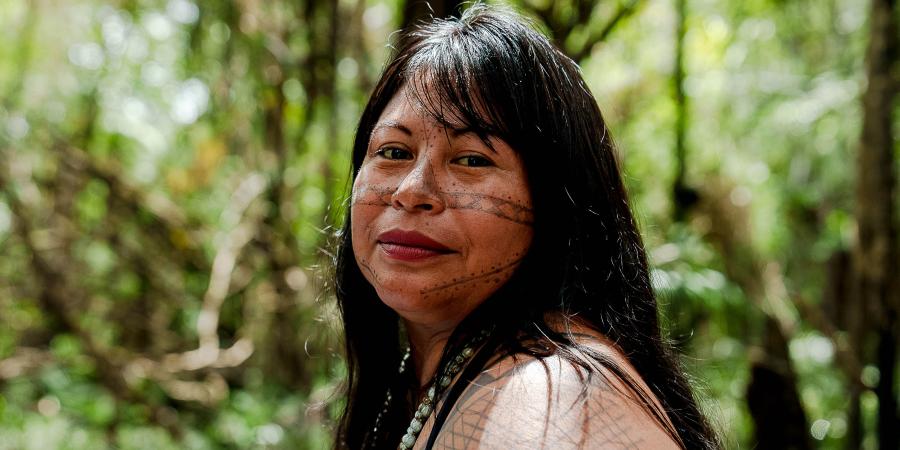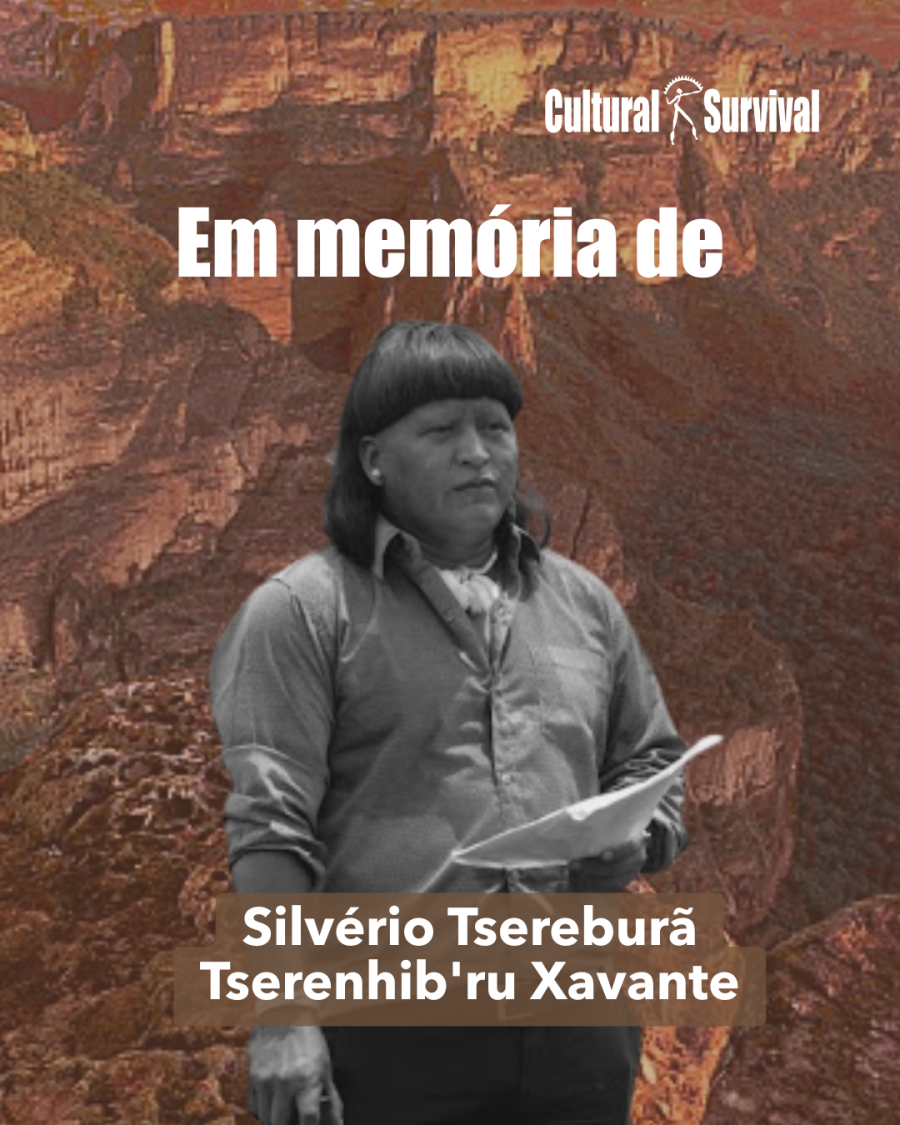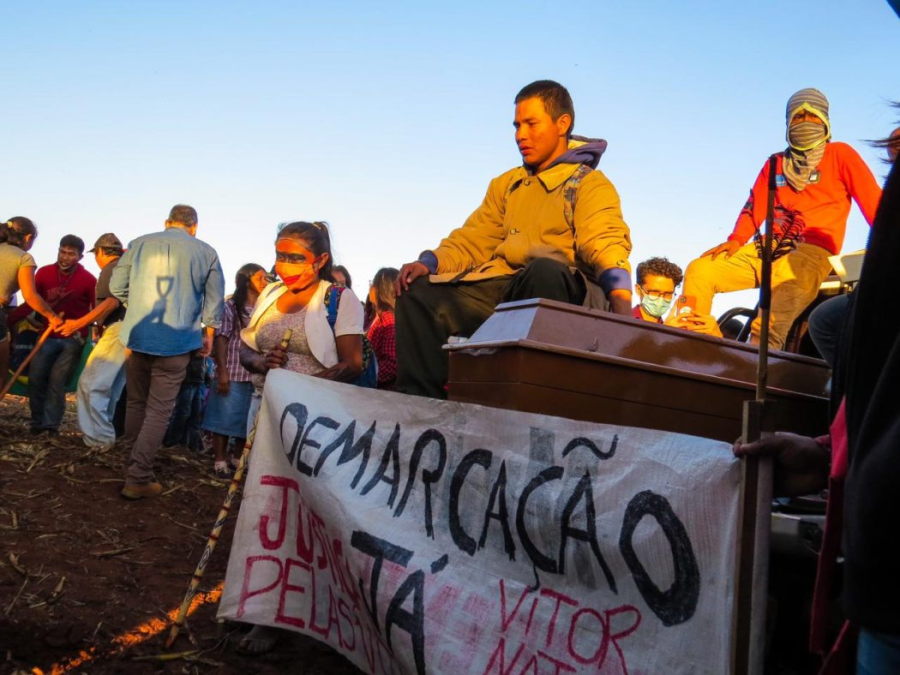Seringueiros Meet with Leaders of UNI
An unprecedented congress of 130 Amazonian seringueiros (rubber tappers) from Acre, Amazônas and Rondônia held last October 11-17 in Brasilia, may have initiated new ways to defend the cultures the rainforest harbors. The seringueiros elected a National Council of Seringueiros, and drafted a key proposal to establish "extractive reserves." Modeled on the legal precedent of indigenous reserves, these forest reserves would be set aside for Seringueiros to manage. This proposal, which has attracted the interest of the Special Secretary for Environment, Paulo Nogueira Neto, constitutes the first grassroots tropical forest conservation initiative to come out of Amazônia.
After the Seringueiros' first national meeting, two seringueiro leaders went to Sao Paulo, on October 28, 1985, to address the United Nation's World Commission on Environment and Development (WCED). There, Seringueiros met with leaders of the Union of Indigenous Nations (UNI), who also addressed the WCED. Seringueiros are the descendants of northeastern Brazilians who migrated to the Amazon during the rubber boom, between about 1870 and 1910. Many still suffer under the debt peonage they call cativeiro (captivity) or escravidao (slavery). In some areas, particularly Acre, seringueiros stayed on in rubber-producing areas the rubber barons had abandoned and supported themselves with mixed-crop agriculture, gathering, hunting, fishing and selling crude latex. These "free" seringueiros are the nucleus of a growing rural union movement in Acre and Amazônas. Many indigenous communities in this area also produce rubber for sale, and in both indigenous and Brazilian communities, producers' and consumers' cooperatives are emerging to eliminate exploitative middlemen.
A long history of violence and mistrust exists among Indians and seringueiros. During the rubber boom, rubber barons organized corridas in Acre - seringueiros were sent on expeditions to massacre indigenous communities or drive them out. Many seringueiros still regard Indians on a par with malaria, snakes and jaguars - dangers of life in the forest. But the seringueiros learned how to live in the forest from the Indians, and today the free seringueiros communities are economically similar to indigenous communities.
A series of public debates held during the WCED meetings brought together environmentalists, seringueiros, representatives of the landless workers' movement and indigenous movement leaders to discuss land use in Amazônia. "Our cause is the same" said UNI leader Ailton Krenak. "The patrons used to pay seringueiros to kill Indians, but we see that we are not enemies. The capitalists who sell the bullets are the enemies." Representatives of the landless workers' movement emphasized that recognition of seringueiros' rights to land and demarcation of Indian land are compatible with the aspirations of the landless. Landless workers want to stay in their home states since migration to Amazonia in government-sponsored programs has not improved their situation.
As Brazil moves toward full democratic rule, discussions similar to those among Indian and seringueiro leaders take on increasing importance. By themselves, Indians have little power in a representative democracy. Indians comprise about .15 percent of Brazil's population, and even fewer have voting rights. Their claims to date have been based on their legal status under Brazil's constitution, which affords them permanent possession of the lands they occupy. Even so, only about 30 percent of the identified Indian land has even minimal legal guarantee.
As large landowners resist agrarian reform, and agribusiness and mining interests claim large expanses of land, indigenous lands increasingly become valuable capital in the electoral market. This situation is particularly serious since the constitution is to be rewritten in 1986 by a constituent assembly, which will be composed of the congress to be elected in 1986. Recent articles in the national press have accused anthropologists who call for full demarcation of indigenous lands, of supporting "apartheid" for the Indians. Some articles go so far as to argue that calls for demarcation of indigenous lands disguise foreign interests who want to control Brazil's mineral resources.
Meanwhile, after a series of FUNAI presidents shamelessly manipulated factions in the indigenous movement and misappropriated large parts of FUNAI's budget to pay transportation and hotel bills for Indian supporters of their candidacies in Brasilia, FUNAI developed a plan for "regionalization." All regular operations of the agency would be taken over by the regional delegacies - which in most cases would be even more susceptible to pressure from land-hungry local interests than the national office.
The Indians will clearly need allies on the state and local levels. The National Council of Seringueiros' proposal for "extractive reserves" suggests some possibilities. The seringueiros, like the indigenous peoples, know from experience that large scale agricultural resettlement schemes have not benefited the poor and landless from the south, but instead have displaced local populations who know how to make sustainable, productive use of forest resources through the devastation of the forest. Further, seringueiros now have a stake in the principle of demarcating preserved areas.
Other groups in Amazônia also have an interest in changing development policy and defending forest resources. Some 500,000 people make their living from extracting wild resources such as rubber, Brazil nuts, a variety of palm nuts and others. The value of these gathered resources in 1980 was over $70 million.
Outside of Amazônia, CONTAG (National Confederation of Agricultural Workers) has recognized the futility of migration to Amazônia as a solution to the problems of the poor, calling for land for the landless in their states of origin. If migration can be slowed, forest populations might see their interests better defended. In Acre, many of the voters still make a living from gathering forest resources.
In a surprising move, José Altino Machado, leader of the National Garimpeiros (Miners) Union, recently approached the Indigenists-Missionary Council (CIMI), with a proposal for an alliance - Indian and indigenist support for garimpeiros' reserves, in return for garimpeiro support for indigenous reserves. Garimpeiros, who mine gold and other mineral deposits by hand or with simple technology, numbered about 300,000 in 1980; estimates now range up to one million. Machado, a flamboyant figure who led an invasion of the Surucucs area of the Yanomami last year (for which he was jailed), has received considerable publicity for his aggressive calls to allow garimpeiros to mine indigenous lands. CIMI was not disposed to form an alliance with the garimpeiros, but the garimpeiros apparently feel the need for allies. In many areas, large mining companies, including state companies whose own mineral reserves are restricted and privately policed, legally prohibit garimpeiros from working. But as conflicts between garimpeiros and mining companies have increased dramatically in recent years, recession and unemployment make any hope look good to the urban and rural poor.
Cooperation among Indians and garimpeiros on a national level seems distant, even though several Kayapó groups have negotiated their own agreements with garimpeiros who work on their reserves, and are making more money than they did under the government's arrangements. But discussions such as those in Sao Paulo at the WCED could lead to greater cooperation among formerly hostile populations who now see their tropical forest subsistence base and way of life threatened by the same interests; they come at a time when such alliances are of increasing importance for indigenous groups.
Article copyright Cultural Survival, Inc.



